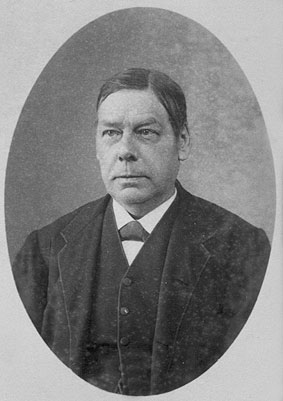The Christian Union is a Christian democratic political party in the Netherlands. The CU is a centrist party, maintaining more progressive stances on economic, immigration and environmental issues while holding more socially conservative positions on issues such as abortion and euthanasia. The party describes itself as "social Christian".

The Anti-Revolutionary Party was a Protestant conservative and Christian democratic political party in the Netherlands. The party was founded in 1879 by Abraham Kuyper, a neo-Calvinist theologian and minister who served as Prime Minister between 1901 and 1905. In 1980 the party merged with the Catholic People's Party (KVP) and the Christian Historical Union (CHU) to form the Christian Democratic Appeal (CDA).
Liberalism in the Netherlands started as an anti-monarchical effort spearheaded by the Dutch statesman Thorbecke, who almost single-handedly wrote the 1848 Constitution of the Netherlands that turned the country into a constitutional monarchy.

The Free-thinking Democratic League was a progressive liberal political party in the Netherlands. Established in 1901, it played a relatively large role in Dutch politics, supplying one Prime Minister, Wim Schermerhorn. The League is a predecessor of two of the major Dutch political parties, the conservative liberal People's Party for Freedom and Democracy (VVD) and the social democratic Labour Party (PvdA). The social liberal Democrats 66 also claims that it and the VDB are ideologically connected.

The Radical League was a progressive liberal political party in the Netherlands from its founding in 1892 until it merged with the left wing of the Liberal Union to form the Free-thinking Democratic League in 1901.

The General League of Roman Catholic Electoral Associations, informally called the General League, was a Catholic political party in the Netherlands. It existed from 1904 to 1926, when it was succeeded by the Roman Catholic State Party. It is one of the ancestors of today's Christian Democratic Appeal.

Joannes "Jan" Kappeyne van de Coppello was a Dutch liberal politician who served as Chairman of the Council of Ministers from 1877 to 1879.
The Liberal State Party, "the Freedom League", was a conservative liberal political party in the Netherlands from 1921 to 1948. It is historically linked to the People's Party for Freedom and Democracy (VVD), a major Dutch political party.

The Liberal Union was a conservative liberal and progressive liberal political party in the Netherlands. A major party in its time, the Liberals were one of the historic predecessors of the Liberal State Party, and therefore of the People's Party for Freedom and Democracy.

The minister of foreign affairs is the head of the Ministry of Foreign Affairs and a member of the Cabinet and the Council of Ministers. The incumbent minister is Caspar Veldkamp of the New Social Contract (NSC) party, who has been in office since 2 July 2024. Regularly, a state secretary is assigned to the ministry who is tasked with specific portfolios, currently the function is not in use. Additionally since 1965 there has been a minister without portfolio assigned to the ministry, the minister for foreign trade and development cooperation has traditionally development cooperation as portfolio, since 2012 the portfolio of trade and export has been assigned added to the function.

This article gives an overview of Christian democracy in the Netherlands, which is also called confessionalism, including political Catholicism and Protestantism.

The Pacification of 1917 was a political agreement between liberals and socialists on the left and some Christian parties on the right in the Netherlands, ending both the suffrage issue and the school struggle. The Christian parties involved would later present themselves as "Christian-democrats".

Johannes Pieter Roetert Tak van Poortvliet, lord of the manor of Poortvliet and Cleverskerke, was a Dutch politician.

Partial general elections were held in the Netherlands on 13 June 1871 to elect 40 of the 80 seats in the House of Representatives.

The Kappeyne van de Coppello cabinet was the cabinet of the Netherlands from 3 November 1877 until 20 August 1879. The cabinet was formed by Independent Liberals after the election of 1877. The centre-right cabinet was a minority government in the House of Representatives. Independent Classical Liberal Jan Kappeyne van de Coppello was Prime Minister.

The Democratic Party was a left liberal political party in the Netherlands. It was founded in 1921 by Jan Ernst Heeres when the Liberal Union, of which he was president, failed to merge with the Free-thinking Democratic League (VDB), and instead merged with the more conservative League of Free Liberals and Economic League.










